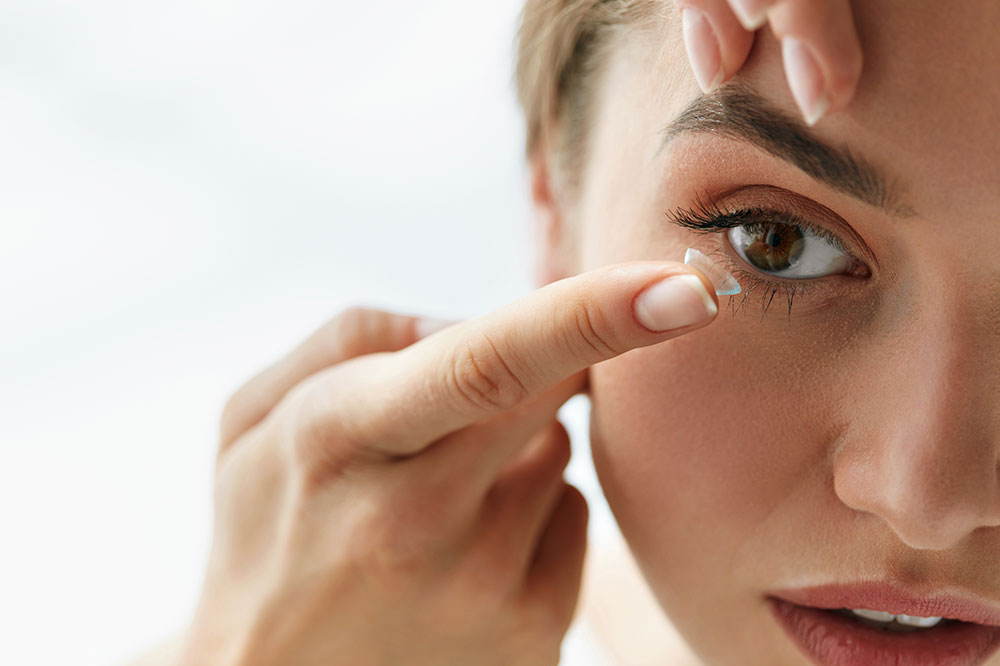
Contact lenses – Types, top companies, and more
Contact lenses are small, transparent plastic disks placed in the eye to improve vision, and like glasses, correct poor vision caused by refractive defects. They are a fantastic option for anyone who needs vision correction but despises Lasik surgery or wearing glasses. These lenses don’t fog up and are perfect for physical activities, providing more natural vision than glasses. Hence, one must know about the different types of contact lenses and which suits one best.
Types of Contact Lenses
Soft contact lenses
Soft contact lenses are the most recommended lenses. They can treat various vision problems, such as myopia, hyperopia, and age-related loss of close-up vision. They are simple to use and come in various styles, like daily wear and overnight lenses.
Daily-wear lenses are only meant to be worn once. They are removed and disposed of at night for cleaning and disinfecting.
Overnight (extended) wear lenses can be worn for 30 days straight, even while sleeping. However, wearing contact lenses like this could result in serious eye infections or corneal issues.
Rigid gas permeable lenses
Most people with vision issues can see clearly and crisply using rigid gas-permeable lenses. Compared to soft contact lenses, these are more flexible, breathable, and durable and prevent dry eyes. These contact lenses must be removed at night for cleaning and disinfection; however, some can be worn for up to a week or even up to 30 days. In addition, one can use these for two to three years if the prescription does not change.
Specialized contact lenses
These specialized contact lenses are made to treat a variety of vision issues, like:
Hybrid lenses
These have a hard gas-permeable center surrounded by a soft outer ring. They can treat uneven corneal curvature, age-related loss of near vision, nearsightedness, and farsightedness.
Multifocal contact lenses
These lenses correct myopia, hyperopia, and presbyopia simultaneously and are available in various materials.
Scleral contact lenses
These larger-than-average rigid gas-permeable lenses reach the eyeball’s white outer layer (sclera). They can help in vision correction if the cornea is uneven or deformed.
Tinted contact lenses
These lenses can be used for either cosmetic or therapeutic reasons. Tinting can improve color perception and help people with color blindness.
Consult your doctor for a complete eye exam and fitting before buying contact lenses. A follow-up exam may be required after one week, one month, and six months to avoid any complications.
Best contact lens companies
Warby Parker
Scout, Warby Parker’s own contact lens brand, charges $47 for a three-month supply of daily contacts (90 lenses total). Prices vary from $60 to $200 online, depending on where you buy and the brand you use. You can get a 6-day free trial before purchasing a full supply. You can file a claim and get reimbursement if the company is not directly linked to the insurance.
Lens.com
Lens.com offers lenses at a lower cost than other retailers. It offers a diverse range of brands, such as Acuvue, Air Optix, and Dailies. As an out-of-network provider, you cannot use your benefits directly, but you can get reimbursed by making a claim.
1800 contacts
This brand provides a large, easily searchable selection of daily and monthly lenses, as well as lenses for dry eyes and multi or bifocal needs. You can use an app-based eye test to change your prescription without going to the doctor for $20. 1800 contacts also offer services like price matching, free returns, exchanges for any reason, and free replacements for damaged lenses.
Discount contacts
This place provides you with 34 different brands and a wide range of lens options, including daily, weekly, and monthly disposables, colored contacts, and multifocal. Also, first-time customers save an additional 20% and orders over $99 get shipping for free.
GlassUSA
GlassesUSA provides 19 main contact lens brands, including Acuvue, Biofinity, and Dailies. It offers price-matching and money-back guarantees on its contacts, as well as a 14-day return policy. Customer service is available from 7 a.m. to midnight, seven days a week, or by email 24 hours a day, seven days a week.
Maintaining contact lenses
Contact lenses come into direct contact with the eyes and thus must be handled with extreme caution. Here are some things to keep in mind to avoid complications.
Before handling contacts, wash your hands with soap and water and dry them.
Reduce contact of lenses with water or saliva. Remove your contact lenses before going swimming or using a hot tub.
After the date of expiration, contact lenses shouldn’t be worn.
After cleaning and storing your lenses, make it a point to throw away the solution in the contact lens case.




